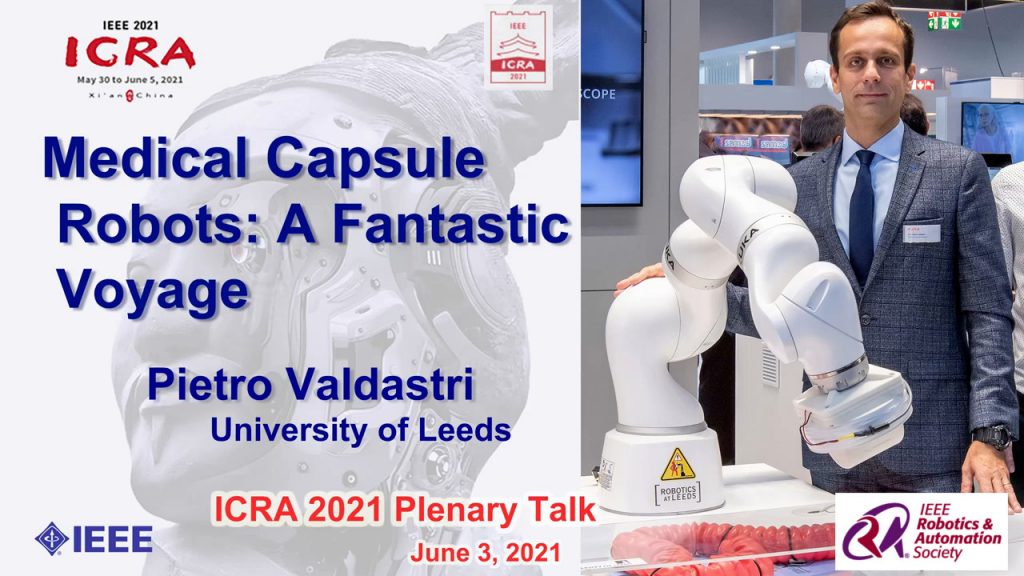
Robohub.org
Pietro Valdastri’s Plenary Talk – Medical capsule robots: a Fantastic Voyage

At the beginning of the new millennia, wireless capsule endoscopy was introduced as a minimally invasive method of inspecting the digestive tract. The possibility of collecting images deep inside the human body just by swallowing a “pill” revolutionized the field of gastrointestinal endoscopy and sparked a brand-new field of research in robotics: medical capsule robots. These are self-contained robots that leverage extreme miniaturization to access and operate in environments that are out of reach for larger devices. In medicine, capsule robots can enter the human body through natural orifices or small incisions, and detect and cure life-threatening diseases in a non-invasive manner. This talk provides a perspective on how this field has evolved in the last ten years. We explore what was accomplished, what has failed, and what were the lessons learned. We also discuss enabling technologies, intelligent control, possible levels of computer assistance, and highlight future challenges in this ongoing Fantastic Voyage.
Bio: Pietro Valdastri (Senior Member, IEEE) received the master’s degree (Hons.) from the University of Pisa, in 2002, and the Ph.D. degree in biomedical engineering, Scuola Superiore Sant’Anna in 2006. He is a Professor and a Chair of Robotics and Autonomous Systems with the University of Leeds. His research interests include robotic surgery, robotic endoscopy, design of magnetic mechanisms, and medical capsule robots. He is a recipient of the Wolfson Research Merit Award from the Royal Society.
tags: c-Health-Medicine





